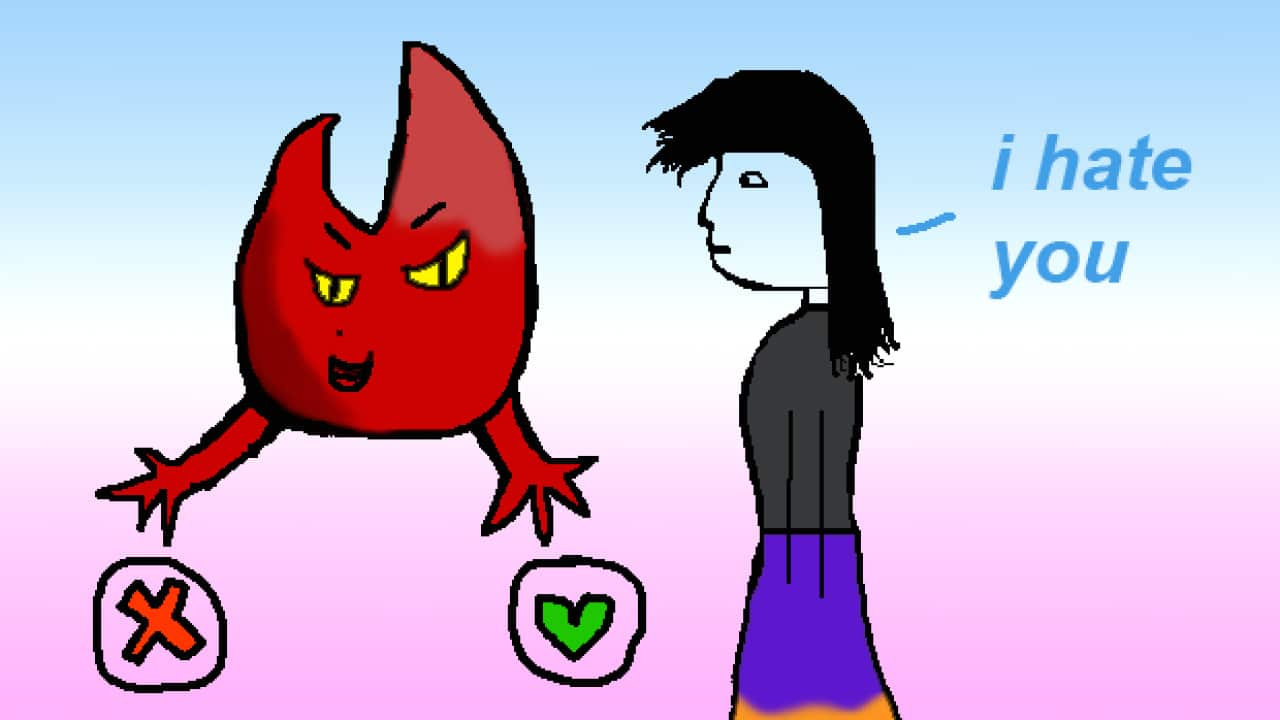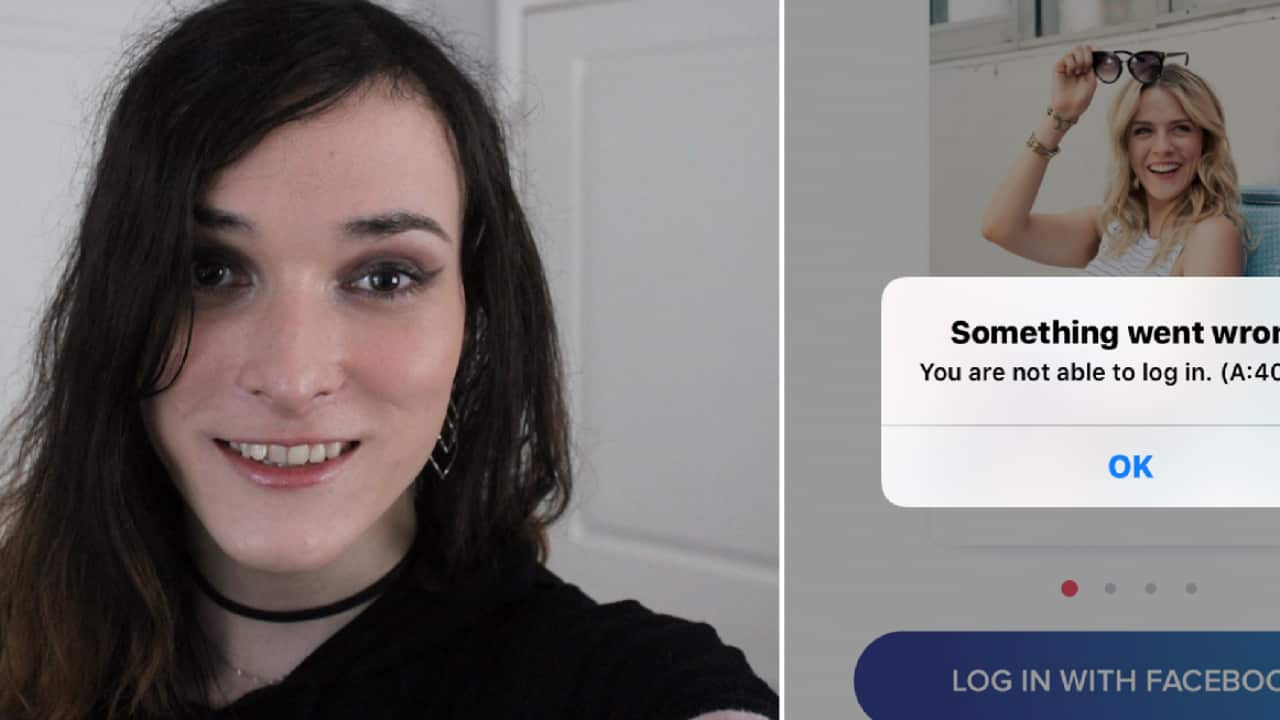In March, Portland woman Ariel Hawkins received an email from dating app Tinder, which read, “Your Tinder profile has violated our terms of service. Your account has been deleted.”
Hawkins couldn’t recall breaking any rules; she hadn’t bullied or spammed anyone, nor had she posted any images that contained nudity or graphic violence. She listed only two identifiers in her profile bio: her job - a cam girl, a wholly legal profession in the US - and the fact she is a transgender woman.
In 2016, Tinder released a US update that promised an increase in gender and sexuality options, in order to make the app safer for queer people. While the app’s update has only been in action in Australia for a month or so, it seems as though the update hasn’t found an enormous amount of success.
Hawkins tells SBS that she doesn’t believe the update has made the app more inclusive for transgender users in the US. Liz Duck-Chong, an Australian trans woman, says of the newly-introduced gender options, “The problem also isn’t trans people and our labels, the problem is society and the way people react to us and treat us. Inclusion policies and extra boxes to tick look great on paper, but don’t solve that transphobia is essentially seen as a god-given right in many spaces.”
Duck-Chong also says that while her own experiences on Tinder have been primarily positive, Hawkins’ experience of being reported, most likely by straight cis men, wasn’t a shocking story to her.
“I am not surprised that cis men are reporting people they clock as trans women online,” she explains. “Cis men’s transphobia expresses itself in fear of being homosexual, for being attracted to women that society has told them are ‘actually men’. It’s a big homophobic, transphobic, fear-mongering clusterf*ck, and those that come out worst off are of course the trans women in question.”
A major issue is whether to disclose one’s trans identity in a dating app bio. Listing it could potentially lead to a trans person's profile being suspended due to reports, being abused, or even being outed in real life. However, if they don’t, if could lead to accusations of ‘misleading’ those they match with, which could lead to extremely dangerous situations.
Hawkins tells SBS she always chooses to disclose on dating profiles that she is a transgender woman, who has not had Gender Confirmation Surgery: “It is fair that other users know upfront. I want to avoid potentially dangerous situations, it saves time for both parties.”
Majority of the women I speak to for this story express similar sentiments to Hawkins - they disclose their trans identities in the interest of ‘weeding out’ those who refuse to date transgender women.
Michelle Sheppard, who tells SBS she’s had several negative experiences on dating apps, says, “I want it up front and out of the way and people know what they might be getting themselves into relationship-wise. I am also upfront that I am a parent and professional. I believe hiding our gender identity and our past actually hinder our progression to acceptance in society.”
“I don't mind people knowing straight away mainly because it weeds out people who do not want to date or be with a trans woman,” says Zoe Lane. “It’s a part of owning who I am and being proud of my identity.”
“I consider it an immediate filter of people who would be disgusted by me,” says Duck-Chong.
Out of the several transgender women that I spoke to, majority of them have either been randomly banned from Tinder and other dating apps themselves, or they know plenty of trans women who have.
After putting a callout on social media, I was inundated with responses from trans women all across the world telling me they’d lost count of the number of times they’d been blocked, for seemingly no reason. One US-based woman, who requested not to be named in this story, told me over the phone, “Honestly, it would be quicker to list the months I where I haven’t been banned”.
The only women who tell me they’ve had majority positive experiences are those who use the app exclusively to meet women and/or non-binary people, including Duck-Chong and Lane.
“I have not been suspended - but, of other trans people I know who have, I would say all of them have been blocked/suspended for being trans. [I] have been afraid of the same thing happening to me and have seen it happen multiple times to other trans people I know - particularly trans women,” Lane tells me, after I ask if she’s ever experienced her dating profile being deleted. “I don't know the process behind how the bans are regulated and applied, but it is clear that this is pretty endemic amongst trans and non-binary users of apps like Tinder.”
Duck-Chong says the experiences of trans women of differing sexualities are worlds apart. "I do [feel safe], but explicitly because I filter hard and have no interest in meeting/talking to men from these apps. My worst Tinder date (heck, my worst ever date) had us meeting up at a bar, having a drink and then both saying 'This clearly isn’t for us, but I hope you have a lovely evening' and parting ways. That’s my worst date. I’ve had friends who date men barely escape with their lives. We’re talking different paradigms of risk here.”
For women who do use dating apps to match with men - the process is risky, complicated, and potentially dangerous.
“Not anymore,” Sheppard tells me, after I ask if she feels safe using dating apps. “I am a very open and out transgender woman publicly and find the majority of people who I do try to engage in conversation on these apps are very forward. It’s about them and their needs, and if you aren’t immediately receptive to them, they are aggressive.”
Sheppard continues, explaining some of her day-to-day experiences on apps like Tinder. She says that it was common to be instantly fetishised. “Comments like ‘I prefer trans women over ‘real women’’, or immediate messages of ‘Would you fuck me and cum on me’ felt degrading,” she says. “When I didn’t respond, they would harass [me]”.
Her experience of having her profile deleted was on OK Cupid, after requesting that she and the man she’d been speaking to meet for the first time in a public place, for safety reasons. “I refused to come to his house for a hook up and I insisted we meet for a coffee first in public - I was unable to access my account afterwards. I asked him politely out of my own insecurities to just keep it clean. But he just sent me photos of his waxed butt and his genitals and […] naked selfies. He blasted me for being a game player, and how I still look like a man and how I am a disgusting pervert.”
So, what could dating apps and sites realistically do to make their app accessible and safer for trans women? Lane says that the script should be flipped on whose profiles are being removed: “Have a review process for men who continually report the accounts of trans women and kick them off the app instead”. Duck-Chong says, “Employ trans people. Pay trans people to work on their policy and conditions. Block users who antagonise trans users and express transphobia.” A woman who chooses to remain anonymous told me, “They just have to listen to trans people. Actually ask us what can be done, and actually listen”. Hawkins says they simply just have to “abide by their own Terms of Service”.
At the absolute least, seeking more input from trans users globally would allow these apps to see the real-life situations that are occurring, and hopefully stop the all-too-common situation of trans users being barred, simply for being who they are.



